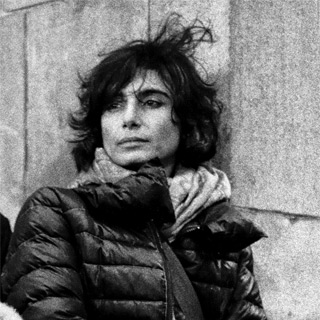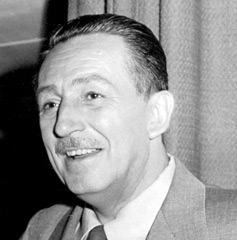Recipe for Stone Soup: How to Let Time Cook Us All. Precedures for Conversational Practice in Contemporary Art
A folk tale found in many cultures speaks of the magical culinary ability of a host surprised by a sudden guest which consists of her being able to cook a delicious soup, out of odds and ends, (with a hot stone as a base ingredient), apparently out of nothing. The host makes the delicious soup, insisting all the time, that it is made of nothing but stone, while borrowing odd bits of flavouring and an assortment of ingredients, from the guest and from neighbours.
Raqs Media Collective will deploy this method to devise a set of procedures for the making of an art work / situation while directly addressing the questions of temporality, responsibility and participation. A gathering of participants who commit to acting together for a few days will be asked by Raqs to contribute a “hot stone” - an idea, an image, a question, a memory, a hope or an anxiety - these “hot stones” are the catalysts for a “soup” or “soups” - that Raqs will cook, together with the participants during the time of the module. The “stones” will interact with each other and with their contributors, over time, to produce a matrix of possibilities - a soup full of charmed and flavoursome particles. Some of this may give rise to art works, or curatorial, or educational projects.
In this way, Raqs will introduce methodologies of collaborative work, protocols of thinking together in a public way, and invite the module participants to consider the task of thinking together as a joyous, and delicious, activity.
SCHEDULE
November 23rd
morning
Guided tour to Cittadellarte, including the Pistoletto, Arte Povera collections and temporary exhibitions (curated by Luca Furlan)
Introductions
afternoon
Setting out of the idea of the “hot stone”
Discussion of what catalysts can mean in artistic and curatorial contexts
Viewing of Capital of Accumulation (Raqs Media Collective); discussion of what could have been the “hot stone” in this work
Discussion of assignment for the next day - Readings, as well as the task to find a “hot stone” for each participant
November 24th
morning
Report on assignment - each participant to bring their “hot stones” to the table, accompanied by showing of short excerpts from the participants selected works
Raqs feedback on the participants work, and assignment
Discussion. Participants to jointly propose two works (by other artists) to be seen by the group
afternoon
Discussion of Readings - “Wonderful Uncertainty”, “For the Curatorial, from the Trapeze” and “Syn Processes” (Texts by Raqs)
break
Viewing of Raqs work - “Strikes at Time” Discussion. Further refinement of Participants’ “Hot Stone” projects, in smaller groups
evening
Viewing of the works proposed by the group
November 25th
a day with Rasmus Nielsen (Superflex)
morning
Screenings and discussion of Superflex works
afternoon
Viewing of the works proposed by the group. (contd.)
November 26th
Participants spend the day working on their projects. Raqs visits them in turns, and one on one discussions
Finishing of projects
Preparation of presentations
November 27th
Presentation and performances of the Hot Stone Projects throughout the day
evening
The Stone Soup Party (Based on pot-luck principles!)
REFERENCES
The mentor will prepare a reader for participants with key texts, some of which will be discussed during the week.
Wonderful Uncertainty (Raqs Media Collective)
For the Curatorial, from the Trapeze (Raqs Media Collective)
Syn Processes (Raqs Media Collective)

BIOGRAPHY AND STATEMENT
Raqs Media Collective enjoys playing a plurality of roles, often appearing as artists, occasionally as curators, sometimes as philosophical agent provocateurs. They make contemporary art, have made films, curated exhibitions, edited books, staged events, collaborated with architects, computer programmers, writers and theatre directors and have founded processes that have left deep impacts on contemporary culture in India.
Raqs (pron. rux) follows its self declared imperative of “kinetic contemplation” to produce a trajectory that is restless in terms of the forms and methods that it deploys even as it achieves a consistency of speculative procedures.
The Raqs Media Collective was founded in 1992 by Jeebesh Bagchi, Monica Narula and Shuddhabrata Sengupta. Raqs remains closely involved with the Sarai program at the Centre for the Study of Developing Societies (www.sarai.net), an initiative they co-founded in 2000.

GUEST
Rasmus Nielsen is co-founder (1993, with Jakob Fenger and Bjørnstjerne Christiansen) of the Danish artists’ group Superflex. Superflex describe their projects as Tools, as proposals that invite people to participate in and communicate the development of experimental models that alter the economic production conditions. Often the projects are assisted by experts who bring in their special interest, these tools can then be further used and modified by their users.
Superflex have had solo exhibitions, among others, at the Kunsthalle Basel (CH); GFZK and Shirn Kunsthalle (DE); REDCAT Gallery, Gallery 1301PE and Hirshhorn Museum and Sculpture Garden (USA); Mori Museum (JP). The group has participated in international arts biennials such as Gwangju (KR); Istanbul (TR); São Paulo (BR); Venice (IT).
www.superflex.net
download the full documentation about the module and the mentor in PDF format
